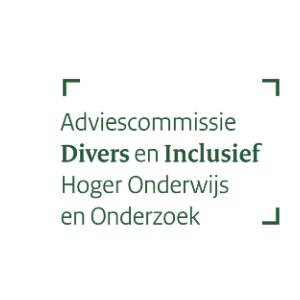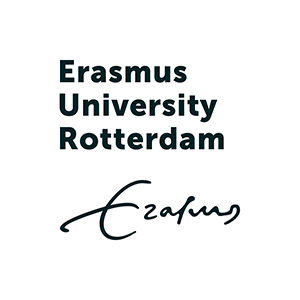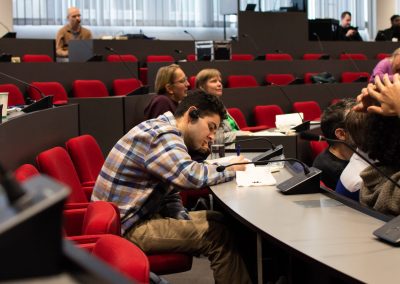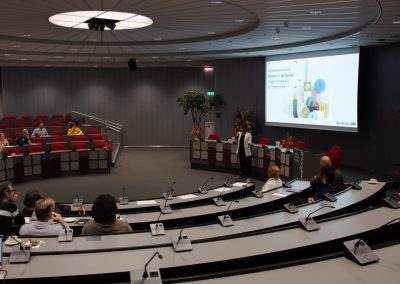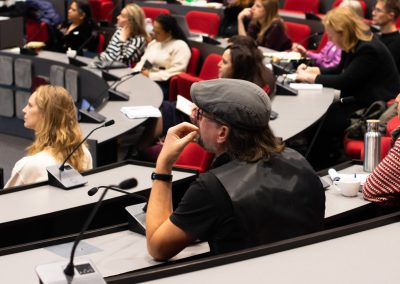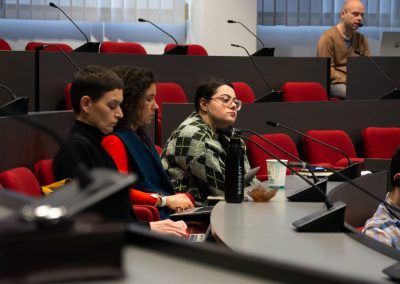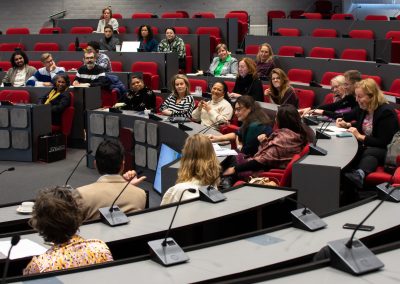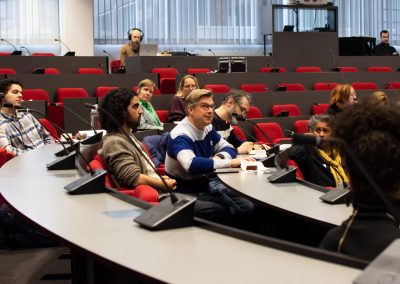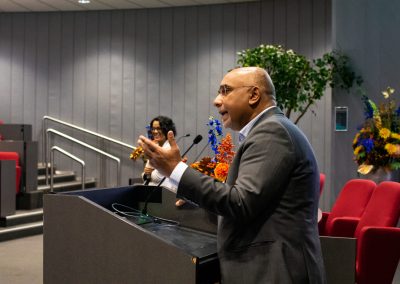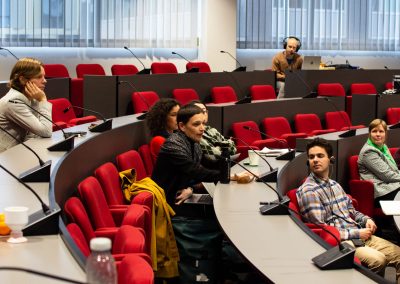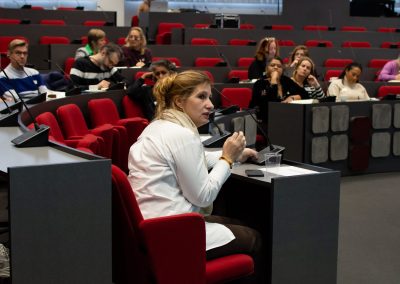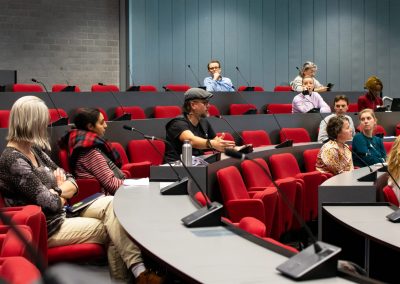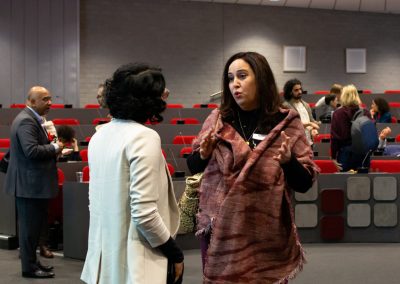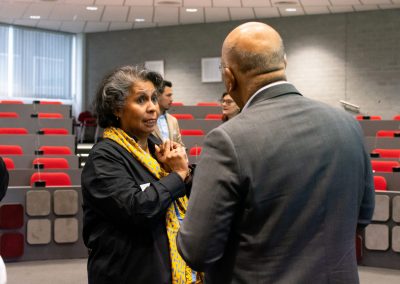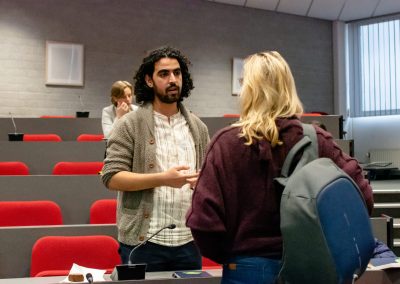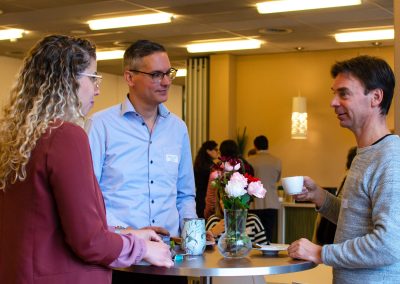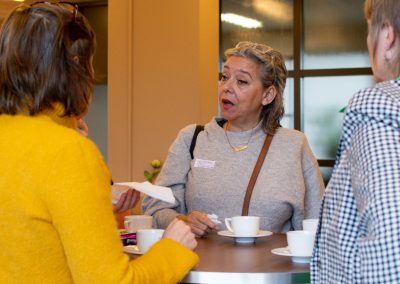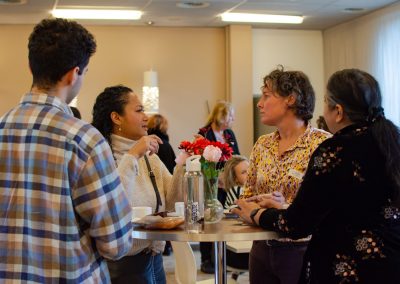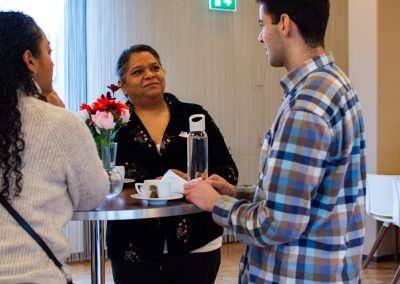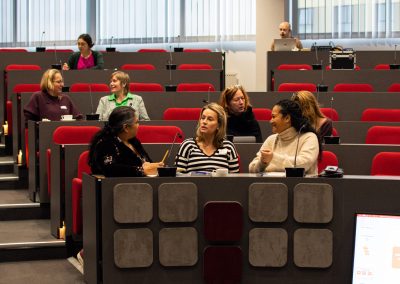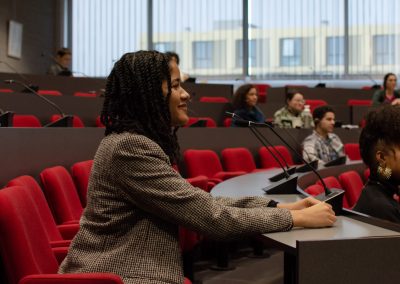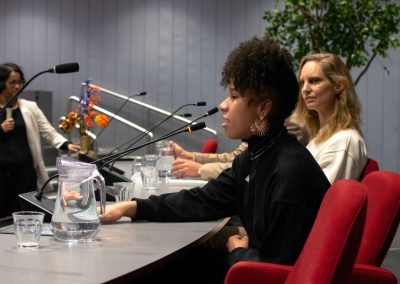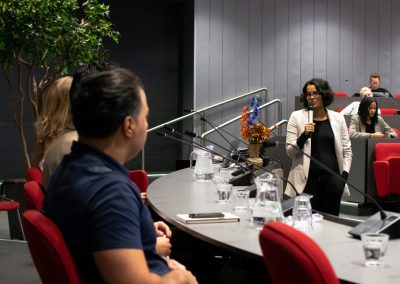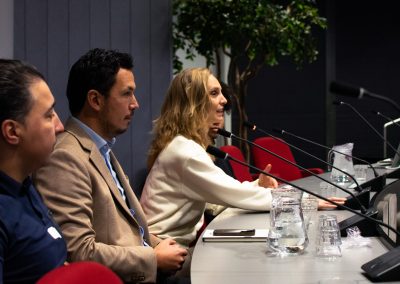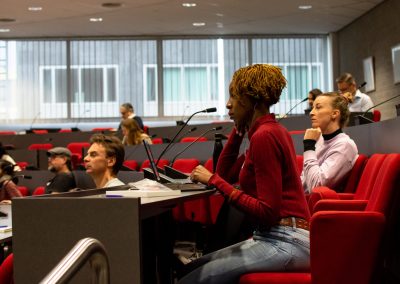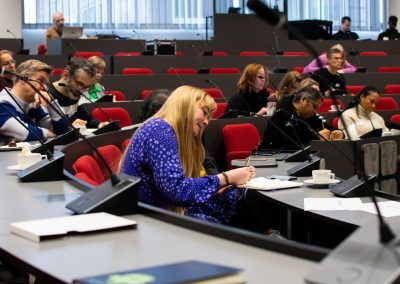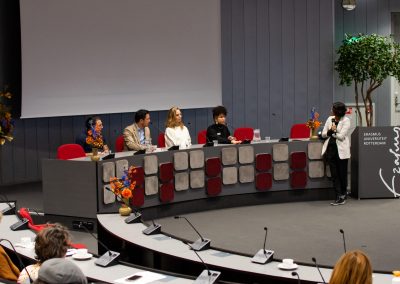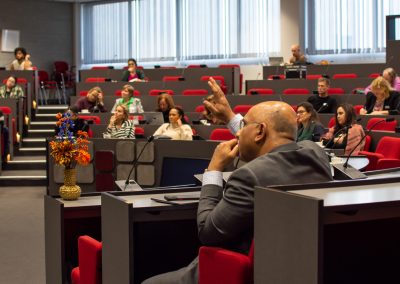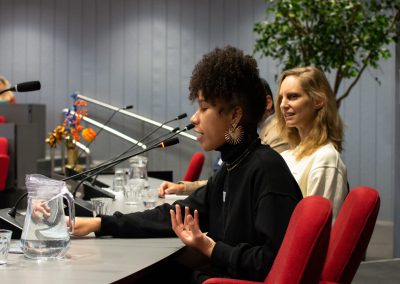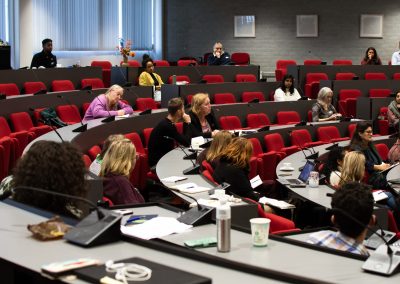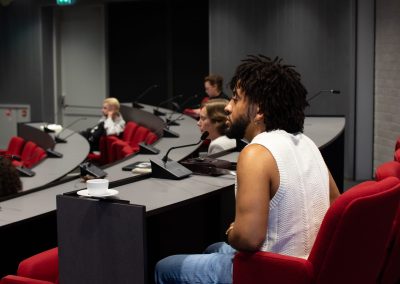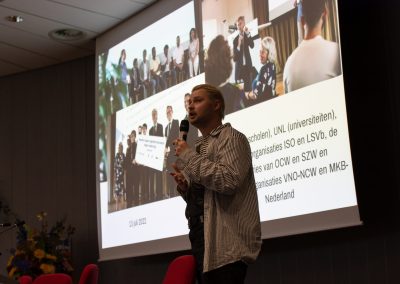ECHO Summit
In collaboration with the Ministry of Education, Culture and Science and Utrecht University, the ECHO Seminar has been taking place for a number of years, which is dedicated to a more Inclusive Higher Education. On the basis of various panel discussions, interactive presentations and international knowledge sharing, more insight is provided into achieving an inclusive educational climate, with specific attention to ‘evidence-based practices’. As an educational institution, how do you ensure an inclusive working and learning environment? How do you close the persistent gap between the success of students with and without a migration background?
As interest in diversity and inclusion in higher education increases, so does the need for structural and specific data. During the seminar, extensive attention was paid to this with both quantitative and qualitative initiatives that contribute to more knowledge about diversity and inclusivity.
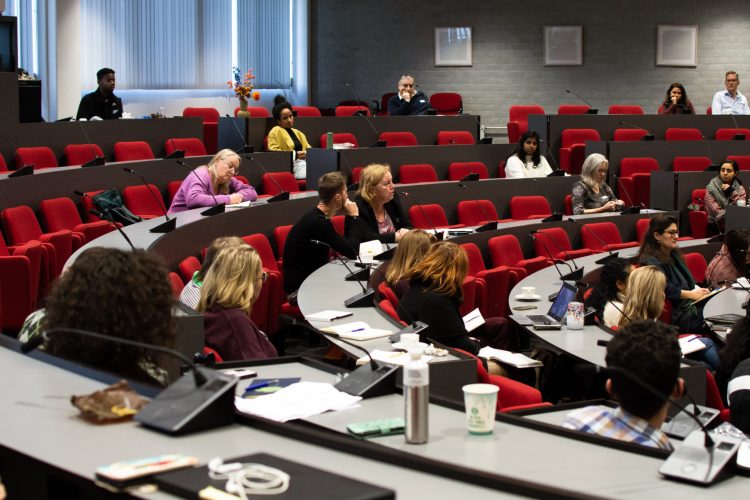
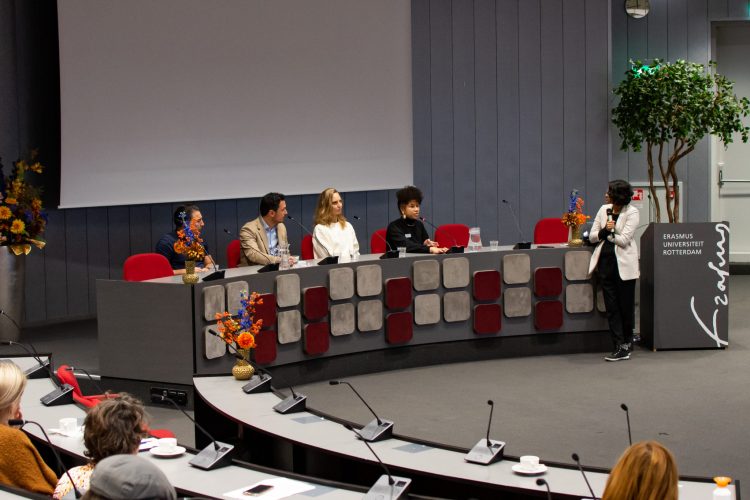
Summit Opportunities for a More Inclusive Higher Education at Erasmus University Rotterdam (EUR), December 1st and 2nd, 2022.
In 2016, ECHO, Expertise Centre for Diversity Policy, and the Ministry of Education, Culture and Science (OCW) started organising an annual meeting dedicated to Opportunities for a More Inclusive Higher Education.
The host organization of the sixth edition Opportunities for a More Inclusive Higher Education is EUR’s Diversity and Inclusion Office. Host organizations in previous years were EUR, University of Amsterdam, Inholland University of Applied Sciences, Utrecht University and De Haagse Hogeschool. This year’s summit is organized by ECHO, the Diversity and Inclusion Office of the EUR, the Advisory Committee on Diversity and Inclusion in Higher Education and Research (DIHOO) and the Ministry of Education, Culture and Science. With this summit, as in previous years, we want to present new knowledge, vision and concrete applications with the aim of inspiring and supporting participants in achieving an inclusive educational climate. What can we learn from successes and pitfalls from each other’s context at home and abroad?
From incidental to structural
Diversity and inclusion are no longer an occasional issue. It is becoming a mainstream part of the strategic agenda of many institutions. Ideally, this should focus on a structural approach aimed at changing regular processes, the content of the educational curriculum, the competences of professionals and the infrastructure of provision needed. In order to create equal opportunities, more attention is needed to the path that young people take to higher education. A structural approach aimed at achieving an inclusive learning and working environment means that sexism, racism, heterosexism and validism are not left unaddressed and are combated in a targeted way. The well-being of students and staff in higher education also deserves attention in such an approach.
We hope to welcome you to the two-day Summit Opportunities for a More Inclusive Higher Education.
When 1 and 2 December 2022
Time 1 December from 10.00 – 17.30, 2 December from 9.30 – 13.00
Location Erasmus University Rotterdam
Language Dutch. English translation is available in the plenary sessions. There are a few concurrent sessions in English
There are no costs attached to participation.
Program:
1st December 2022 from 10.00 – 17.30
EUR and University of California Los Angeles (UCLA) metropolitan equity approach
EUR has launched a metropolitan strategic approach in cooperation with the Municipality of Rotterdam, schools (primary and secondary), higher education institutions and other stakeholders in Rotterdam. Through outreach activities, they are committed to optimizing the chances of young people in Rotterdam to successfully progress from primary to secondary education, as well as providing good preparation for orientation and entry into higher education. EUR’s strategic approach is inspired by the success of UCLA which, as a selective public university, is one of the most diverse universities in the United States. Part of making university’s access and retention policies more inclusive is to actively engage in outreach in the city’s most diverse neighborhoods, with UCLA students representing these communities working with high schools to make an impact. Semiha Denktaş, professor and Chief Diversity Officer at EUR and Abel Valenzuela, professor and Dean of Social Sciences at UCLA will present how EUR and UCLA contribute to equity at the metropolitan level.
Two parallel sessions will feature presentations and workshops on the following topics:
- Approach to outreach EUR and partners in Rotterdam
- Results of an EU project on Sense of Belonging (in English)
- Social safety in relation to sexism, racism and heterosexism
- Results of the Students-4-Students Campaign
- Student data on diversity and inclusion
- First results of an EU project on Inclusive Digital Education (in English)
- Making institutional exclusion mechanisms negotiable (Racism, sexism etc)
- The role of academic staff in making HE more inclusive: Learning from UCLA (in English)
The first day of the summit will be concluded with a panel discussion on what it takes to tackle racism, sexism, heterosexism and other mechanisms of exclusion.
2nd December 2022: from 9.30 – 13.00
Advisory Committee on Divers and Inclusive Higher Education and Research
The second day of the summit focuses on the work of the Advisory Committee on Divers and Inclusive Higher Education and Research and the national programme against internship discrimination resulting from the Manifesto against internship discrimination in higher education.
The Divers and Inclusive Higher Education and Research (DIHOO) Advisory Committee chaired by Vinod Subramaniam advises on promoting an inclusive, diverse and safe learning and working environment in higher education and academic research. During the summit, the chairman reflects on the work of the advisory committee over the past two years.
Manifesto against internship discrimination
Universities of applied sciences affiliated to the VH, universities united in UNL, the ministries of OCW and SWZ, student organisations ISO and LSVb, and employers’ organisations VNO-NCW and MKB-Nederland are taking action against internship discrimination in higher education with the Manifesto. This manifesto stems from the commitment of higher education institutions, employers and students and is based on insights from studies and policy and political commitment from the ministries of OCW and SZW. During the summit, participants can learn about the ambitions of signatories, students’ perspectives and how higher education institutions can participate in the activities carried out under the Stage Discrimination Work Programme.
We hope to welcome you to the two-day Summit Opportunities for a More Inclusive Higher Education.

